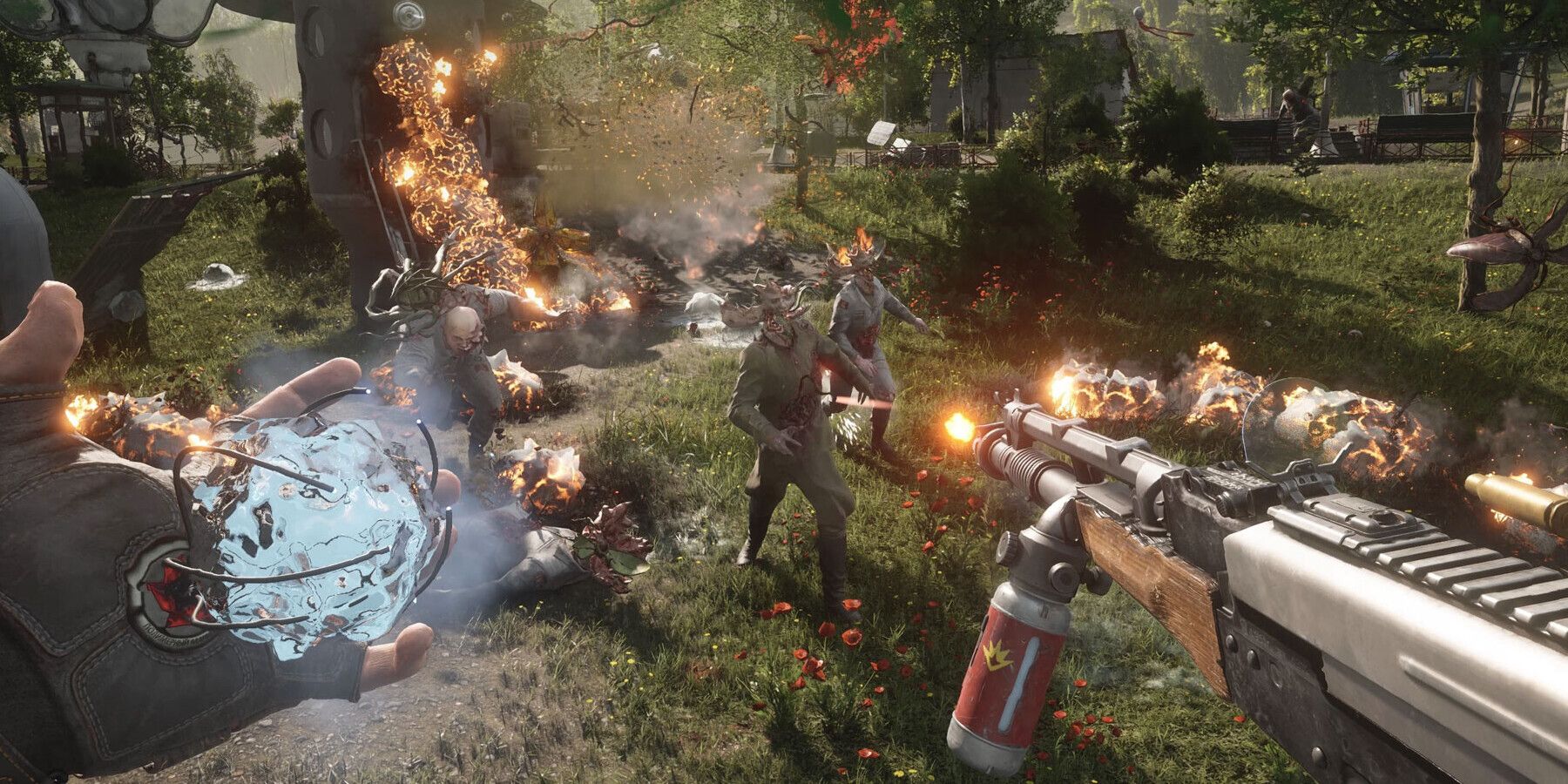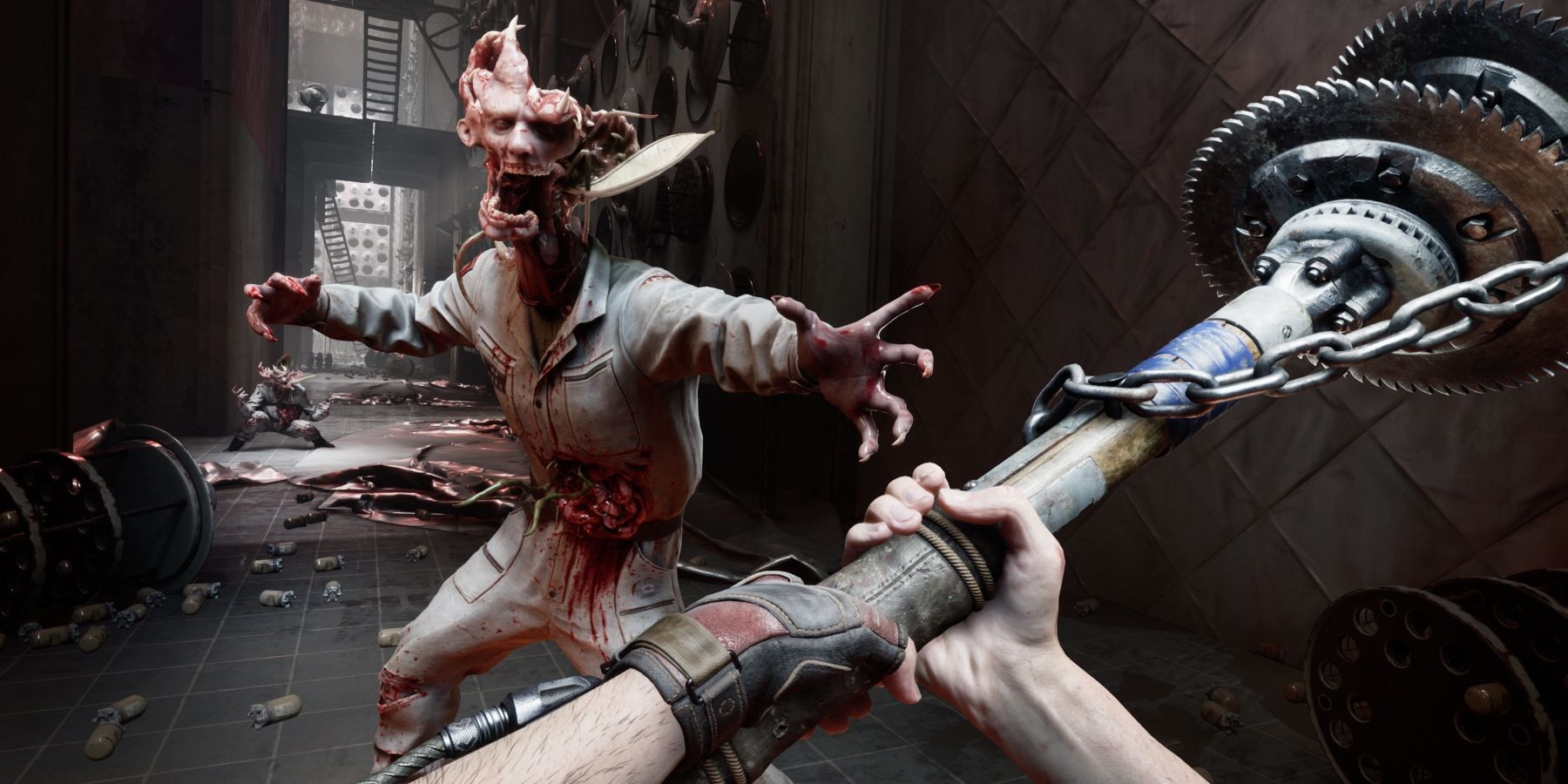Atomic Heart is going to rely on the infamous Denuvo DRM for its anti-piracy measures, as it turns out, but the developer believes that the game's implementation of Nvidia's proprietary AI upscaler, DLSS, should be enough to compensate for any potential performance issues. As popular as it is with developers and publishers, the use of Denuvo remains a contested topic whenever it gets brought up.
Many still recall the last time Denuvo suffered a DRM outage, leading to big games being completely unplayable until the issues were resolved. While this problem is hardly commonplace, the fact remains that Atomic Heart is a solo experience with no multiplayer functionality, yet it's going to need to phone back to Denuvo anti-tamper servers every so often to check whether it's been pirated.
Mundfish CEO, Robert Bagratuni, has said in his recent interview with the Russian gaming website Igromania that Atomic Heart would leverage Denuvo DRM to prevent piracy attempts. While most contemporary blockbuster releases do, indeed, rely on Denuvo anti-tamper tech for security, the issue here is that Denuvo hasn't ever been mentioned in the context of Atomic Heart, and it's still not referenced anywhere on the game's official Steam page. Since a large portion of the gaming community actively dislikes Denuvo, this may prove to be a bigger problem than Mundfish may have anticipated.
Moreover, Bagratuni also said that gamers that are concerned over Denuvo DRM's potential effect on performance shouldn't worry, because Nvidia DLSS will be able to "win back the losses, if any." Indeed, Atomic Heart is one of the many games that support Nvidia DLSS, but the problem here is twofold. Firstly, DLSS is a proprietary AI-based upscaler that is only available for Nvidia users in the first place. Secondly, and more importantly, only Nvidia RTX 4000 owners have access to DLSS 3.0's frame generation features, which is the only way to avoid CPU bottlenecks in modern video games. Denuvo DRM would specifically affect CPU performance, if anything, meaning that Bagratuni's announcement might not be great news for the vast majority of gamers.
Earlier this month, the Atomic Heart developer refused to substantively comment on the Russian war of aggression in Ukraine, which got it into hot water with the community. With the earlier stories of issues during the game's development and the latest name-dropping of Denuvo, Atomic Heart does seem to have a bit of baggage already.
Regardless, the shown-off RT-enabled gameplay footage of Atomic Heart does look pretty good. If Mundfish successfully delivers on all of its promises, it's easy to imagine Atomic Heart could be one of 2023's most prominent releases.
Atomic Heart releases on February 21 for PC, PS4, PS5, Xbox One, and Xbox Series X/S.
Source: Igromania (via DSO Gaming)


